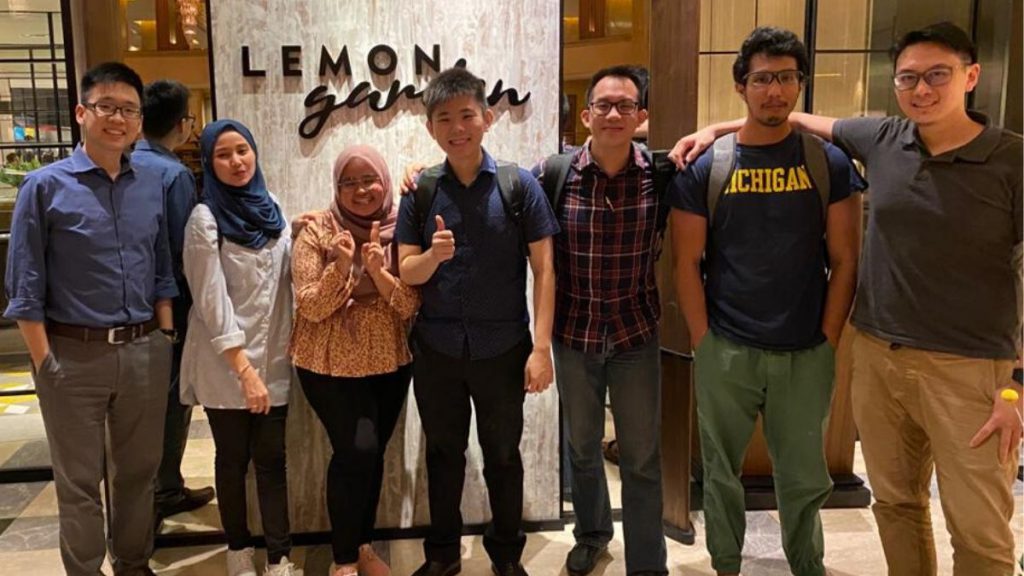On April 30, Prime Minister Muhyiddin announced that the Conditional Movement Control Order (CMCO) would begin on May 4.
Under the CMCO, one of the changes made in the F&B sector would be that operators will now be able to allow dine-in customers alongside take-aways and deliveries.
However, this change comes with certain conditions, such as only being able to serve customers from 7AM to 10PM and rearranging seating to implement social distancing between customers, among other SOPs.
F&B operators must also record a variety of customer information like names, NRIC, contact numbers, and temperatures to ensure that contact tracing can be effectively carried out when necessary.
To some, this is extra work that they’ll have to do, and there is a worry of using pen and paper for the record, as this leads to higher risk of COVID-19 transmission.
Thus, Malaysian startup MulahRewards.com stepped in to help ease the burden of this particular SOP for F&B operators by introducing their own free, lifetime COVID-19 Customer Walk-In Registry System on May 1.
Check-In Before You Dine In
How it works is simple: customers check-in at a restaurant via scanning a QR code that leads them to a site. They will be prompted to key in their mobile number, register their name, NRIC, and temperature (measured by the restaurant), and that will mark the end of a successful registration and check-in.
After they’ve dined, they will key in their phone number to check-out, and the time and date of checking-in and out will be recorded by the system too.
If you’ve been an avid reader of Vulcan Post thus far, you may realise that we’ve written about a similar contact tracing solution via QR codes, CovCT, back in early April.
The main difference between CovCT and MulahRewards.com’s solutions is the fact that the latter’s is made specifically for F&B establishments, and that they also have an existing clientele of restaurants and retailers already.
“We have about 350 outlets that have adopted the registry, and they are mostly in Klang Valley right now, about 30% are out of Selangor,” co-founder Nicholas told us.
However, he also observed a slight dip in the number of registrations after some states like Selangor and Negeri Sembilan announced that they would not be adapting the CMCO and would remain strict.
Covering As Much Ground As They Can
As a rule of thumb, MulahRewards.com tries to get F&B operators set up with their QR code within 24 hours of registering.
They can also provide the check-in and out posters for the operators to print and stick in their stores for customers to scan.
One question that I had, however, was about whether this solution was hawker stall-friendly, since many older aunties and uncles who aren’t exactly tech-savvy operate these stalls (and sometimes have equally old customers).
Surprisingly, Nicholas revealed that a number of hawker stalls have already registered with MulahRewards.com, and that they adapt quickly too.
What happens then if it’s discovered that a dine-in customer is COVID-19 positive a few days later, who wasn’t detected on the date of dining in due to being asymptomatic or simply in the early stages of it?
In that case, MulahRewards.com will immediately alert the business owners and other customers who were present that day to go for testing, and hand over the relevant data to the Ministry of Health.
“On top of that, we can also detect which other establishments the infected person has frequented immediately as well,” Nicholas said.
They’re eager to work with other contact tracing solution providers in Malaysia too so they can detect all venues an infected person has visited in the past 14 days.
However, this would require a large number of merchants to already be using similar contact tracing solutions.
Keeping Malaysians & Their Data Safe
MulahRewards.com uses Amazon Web Services based in Singapore to store all this encrypted data from end to end, and also creates hourly backup files of every single merchant they work with to ensure that their own data is stored securely.
What the team would like to work on pushing out next is a new feature for the solution which will help businesses carry out crowd control in their establishments.
As per Majlis Keselamatan Negara’s (MKN) guidelines, each F&B establishment must declare the maximum number of patrons that they handle at any one time.
“So, we will help businesses systemise this process to ensure that these guidelines are followed, and that they will not get on the wrong side of the law,” Nicholas shared.
Currently, they’re relying on growing via word of mouth through their merchants, but Nicholas hopes that state or federal governments would endorse them to boost their reach.
They’ve already spoken to Selangor’s Menteri Besar, Amirudin Shahri, and are trying to get in contact with the Ministry of International Trade and Industry (MITI) and Ministry of Health (MOH) too.
- You can read about other COVID-19 related topics here.
Featured Image Credit: MulahRewards.com
